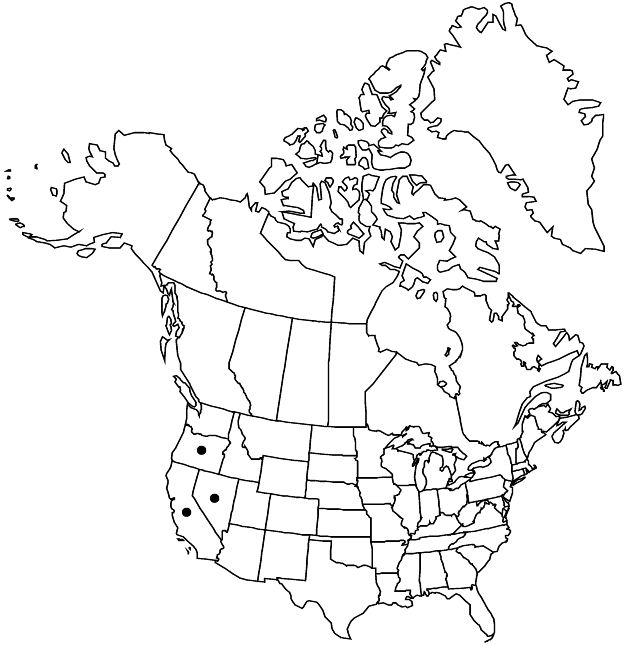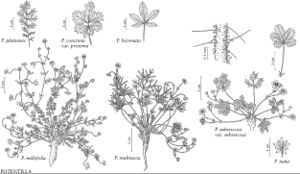Difference between revisions of "Potentilla millefolia"
Bull. Torrey Bot. Club 23: 433, plate 277, figs. 1–5. 1896.
imported>Volume Importer |
imported>Volume Importer |
||
| Line 70: | Line 70: | ||
|publication year=1896 | |publication year=1896 | ||
|special status=Endemic;Illustrated | |special status=Endemic;Illustrated | ||
| − | |source xml=https:// | + | |source xml=https://bitbucket.org/aafc-mbb/fna-data-curation/src/2e0870ddd59836b60bcf96646a41e87ea5a5943a/coarse_grained_fna_xml/V9/V9_252.xml |
|subfamily=Rosaceae subfam. Rosoideae | |subfamily=Rosaceae subfam. Rosoideae | ||
|tribe=Rosaceae tribe Potentilleae | |tribe=Rosaceae tribe Potentilleae | ||
Latest revision as of 23:55, 5 November 2020
Plants ± rosetted; taproots fleshy-thickened. Stems usually prostrate, sometimes ± decumbent, 0.4–2(–3) dm, lengths 1–2 times basal leaves. Basal leaves pinnate with distal leaflets ± confluent, 2–15(–20) × 1–3 cm; petiole 0.5–2(–3) cm, straight hairs sparse to abundant, appressed to spreading, 0.5–1.5 mm, stiff, cottony hairs absent, glands absent or sparse; primary lateral leaflets (3–)5–13 per side, on distal 2/3–3/4+ of leaf axis, separate to overlapping, largest ones cuneate to flabellate, 0.5–1.5(–2) × 0.5–2 cm, distal 2/3 to whole margin palmately or unevenly, rarely pinnately, incised 2/3 to completely to midvein, ultimate teeth or segments (1–)2–10, linear to broadly oblanceolate, 2–10 × (0.5–)1–2 mm, apical tufts to 1 mm, surfaces green to grayish green, not glaucous, straight hairs sparse to abundant, appressed to spreading, 0.5–1.5(–2) mm, stiff, cottony hairs absent, glands sparse to common. Cauline leaves (0–)1–2. Inflorescences 3–6(–10)-flowered, loosely cymose, sometimes racemiform. Pedicels (0.5–)1–2(–4.5) cm, ± recurved in fruit. Flowers: epicalyx bractlets ± elliptic, 2–4(–6) × 1–2(–2.5) mm; hypanthium 3–6 mm diam.; sepals 4–6(–8) mm, apex acute; petals 4–8(–10) × 3–7(–9) mm; filaments 2–3.5 mm, anthers 0.7–1 mm; carpels 10–30, styles (1.5–)2–3 mm. Achenes 1.5–2 mm, smooth, often ± carunculate.
Phenology: Flowering spring–summer.
Habitat: Vernally to permanently wet meadows, moist openings in conifer forests and sagebrush, alkaline flats
Elevation: 700–2200 m
Distribution

Calif., Nev., Oreg.
Discussion
Potentilla millefolia occurs from central Oregon to the east side of the Sierra Nevada of California, with a disjunct occurrence on the alkaline flats of Reese River Valley, Nevada. Significant variation occurs in vestiture type, leaflet dissection, and flower size, but with minimal geographic correlation. The most distinctive variant, represented by the type of P. klamathensis, has relatively long, slender, spreading, pustule-based hairs, often intermixed with shorter hairs. This vestiture type does not appear to be correlated with any other characters or geographic distribution and may vary within a population.
Selected References
None.
